“A dog comes to you and lives with you in your own house, but you
do not therefore own her, as you do not own the rain, or the
trees, or the laws which pertain to them.
…
A dog can never tell you what she knows from the
smells of the world, but you know, watching her,
that you know almost nothing.”
—Mary Oliver
“Do you have a dog?”, one of the nurses asked me as I laid in the hospital bed, resting in the post-birth afterglow. She gave my husband a bloody receiving blanket.
“Put this in her bed. It’ll help with the adjustment.”
When I was pregnant, I was warned about all the ways that my life would change after having a baby— how my relationship would inevitably change, and how “the dog would just become a dog.”
I remember thinking that Bea could never just be “a dog.” She was a member of our family. Our life more or less orbited around her before the baby was born. She got quarantined with us, came on road trips, hiked mountains, cozied up with us in bed in the morning, provided the ongoing white noise of snores and grunts— the soundtrack of our lives. I felt guilty when I had to leave her in an empty house to go to work. When I used to milk cows, she’d get up early with me and ride over to the farm and wait in the office for me to finish. She demanded you love her, forcing herself into whoever’s lap was closest. I used to watch dog massage videos on YouTube and give her elaborate rubdowns at night, telling myself that it would offset the inevitable aging process that was taking hold of her.
When Joe and I found out I was pregnant, Bea sat erect on the floor, looking back and forth between us, like she was wondering what the big news was. She laid with me while I nauseous and weepy, snuggling up to my belly while I petted her and grappled with the changes to come. She took walks to the park with me as I got bigger and bigger, both of us walking more and more slowly with each passing month. I would sit under the big oak tree and watch her as she wandered off, following some scent.
During early labor, she laid patiently on the couch with me. She sat by the birth pool respectfully, stoically. Like she was saying, “I have done this, and you can, too.” During active labor I remember, in between contractions, falling back into my rational mind and telling the group, “Someone needs to take Bea out.”
When we came home with Adeline, Bea was a nervous wreck. She would bark and pace when the baby cried. She would jump up and down like she was trying to help. We were intolerant from sleep deprivation and the stress of new parenthood, herding her out of rooms, shushing her. She was constantly underfoot; I would trip over her while holding the baby and curse under my breath. One night I distractedly let her outside, closed the door, and completely forgot about her until an hour later, when the neighbor knocked on the door with her under his arm. I was flooded with guilt. She started to fade into the background a bit. She wasn’t “just a dog,” but she was more of a dog than “the baby,” like she used to be, and she knew it.
She and Addie developed a special friendship. Bea would lick Addie’s hands and make her squeal and giggle. She’d let Addie climb on her and use her to balance when she was learning to stand. She tolerated the baby grabbing fistfuls of her wrinkly face, sticking her fingers in her eyes and ears. She was unfazed with Addie interrupting her mealtime. She sensed Addie’s innocence. A world class babysitter.
The night that we took Bea to the ER, the baby woke up crying from the commotion, and I told Joe to take the dog. I laid in bed nursing and realized I did not say goodbye. I thought she was coming back. She never did.
The house is quiet now. There is no soft black lump snoring on my couch. I have just one tiny creature following me around the kitchen now, climbing into my lap, demanding my attention.
The door to the playroom, which never quite closes all the way, will not be nosed open during naptime anymore.
I don’t have to worry about Bea’s nails clacking loudly on the uncarpeted floor waking the baby.
When I sit upstairs in the dark, holding my sleeping daughter, thinking of the list of things I still need to do before I can go to sleep— letting Bea out isn’t one of them.
I don’t have to worry about Addie crawling over to the dog bowls and sticking her hands in them.
When I go to the coffee shop, I don’t grab a dog treat from the communal jar.
I don’t have a floor-cleaner anymore. Now I bend over and clean up the splatters of carrot puree and egg yolk that have fallen from the highchair.
There is something about her passing that feels like it has punctuated the transition into motherhood. Bea was a central part of my pre-baby life. She was my best friend, my first baby, the recipient of my undying love and devotion. I can see, when I scroll through my camera roll, the transition, as hundreds of photos of her slowly turn into hundreds of photos of Adeline. She was the last piece of pre-baby-me that existed, the last pillar of my old life. She ushered me into motherhood— and then she left.
Bea was not really a “loyal companion.” She was not obedient. She did whatever she wanted, and on her own time.
We were just lucky that what she wanted, was only to be with us.


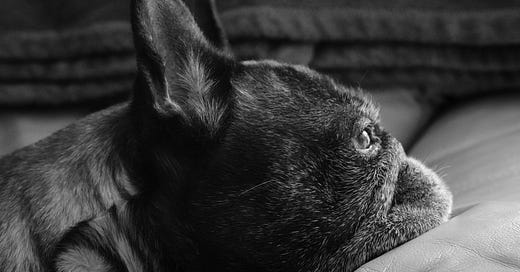



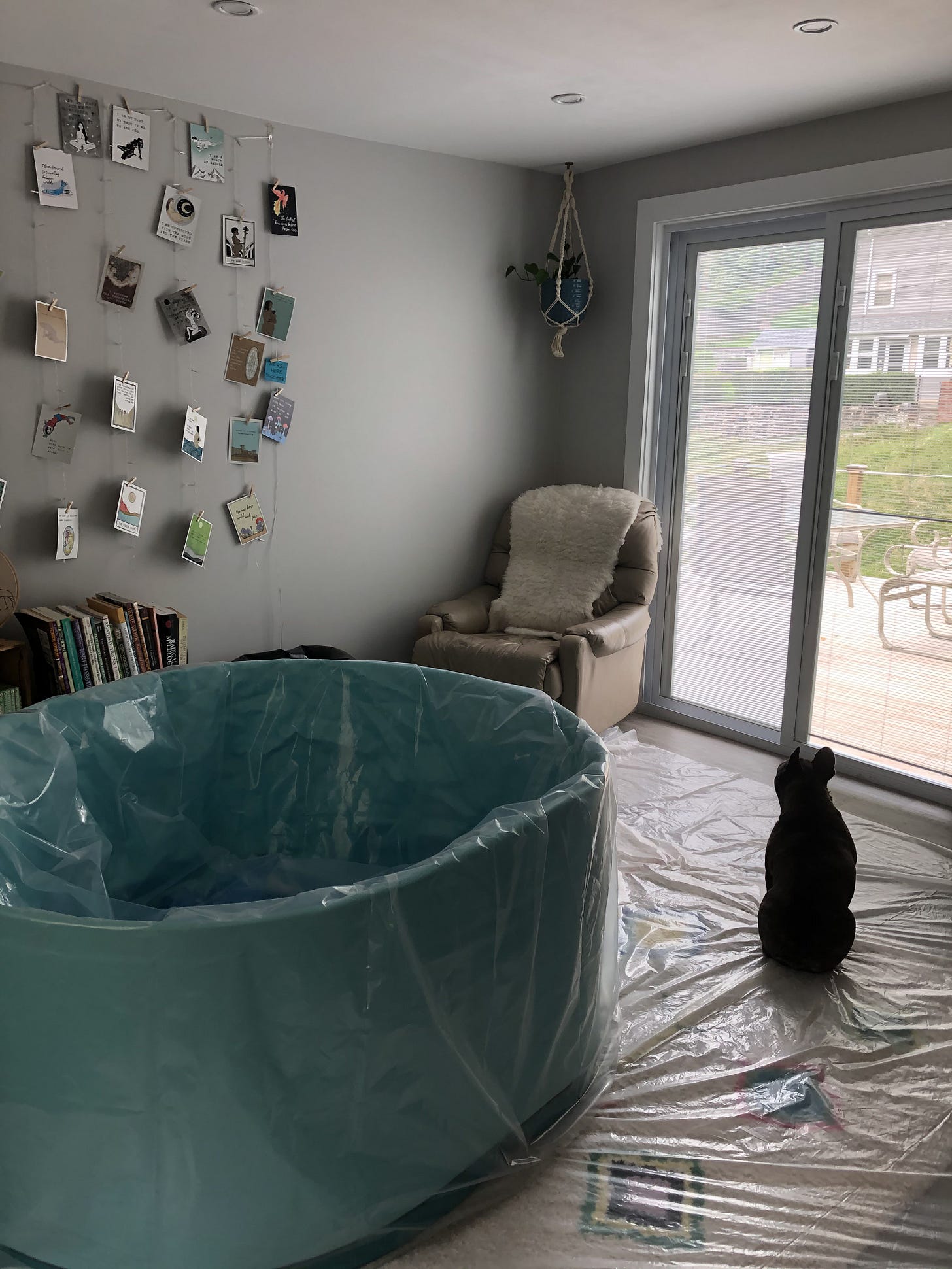
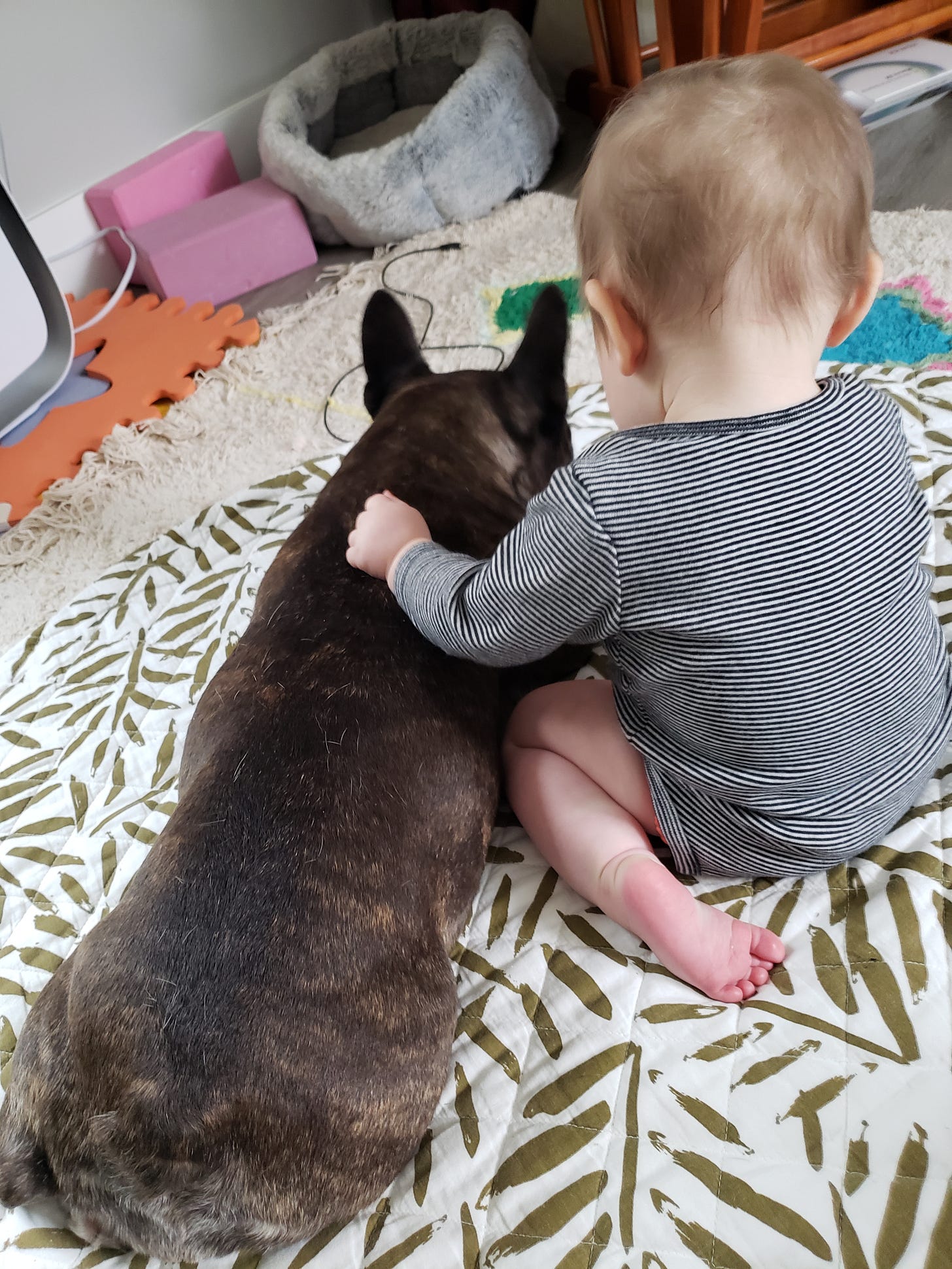
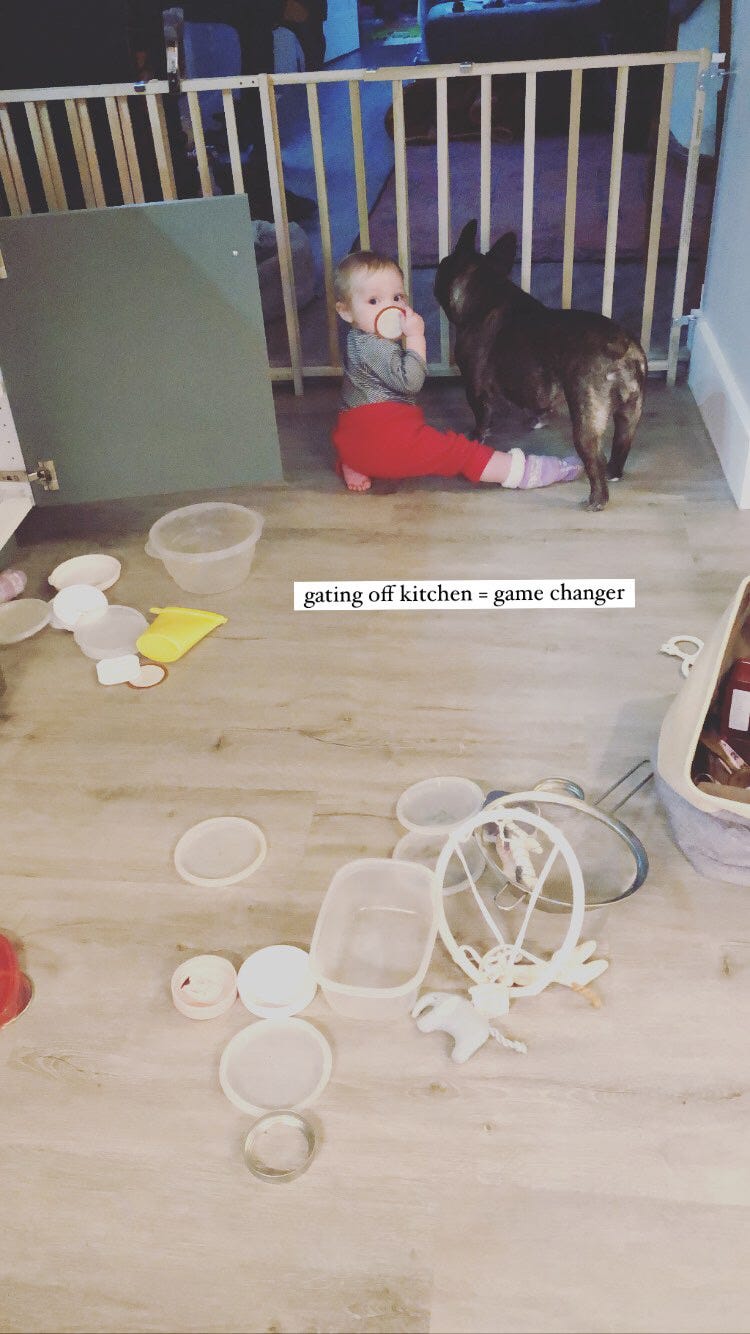
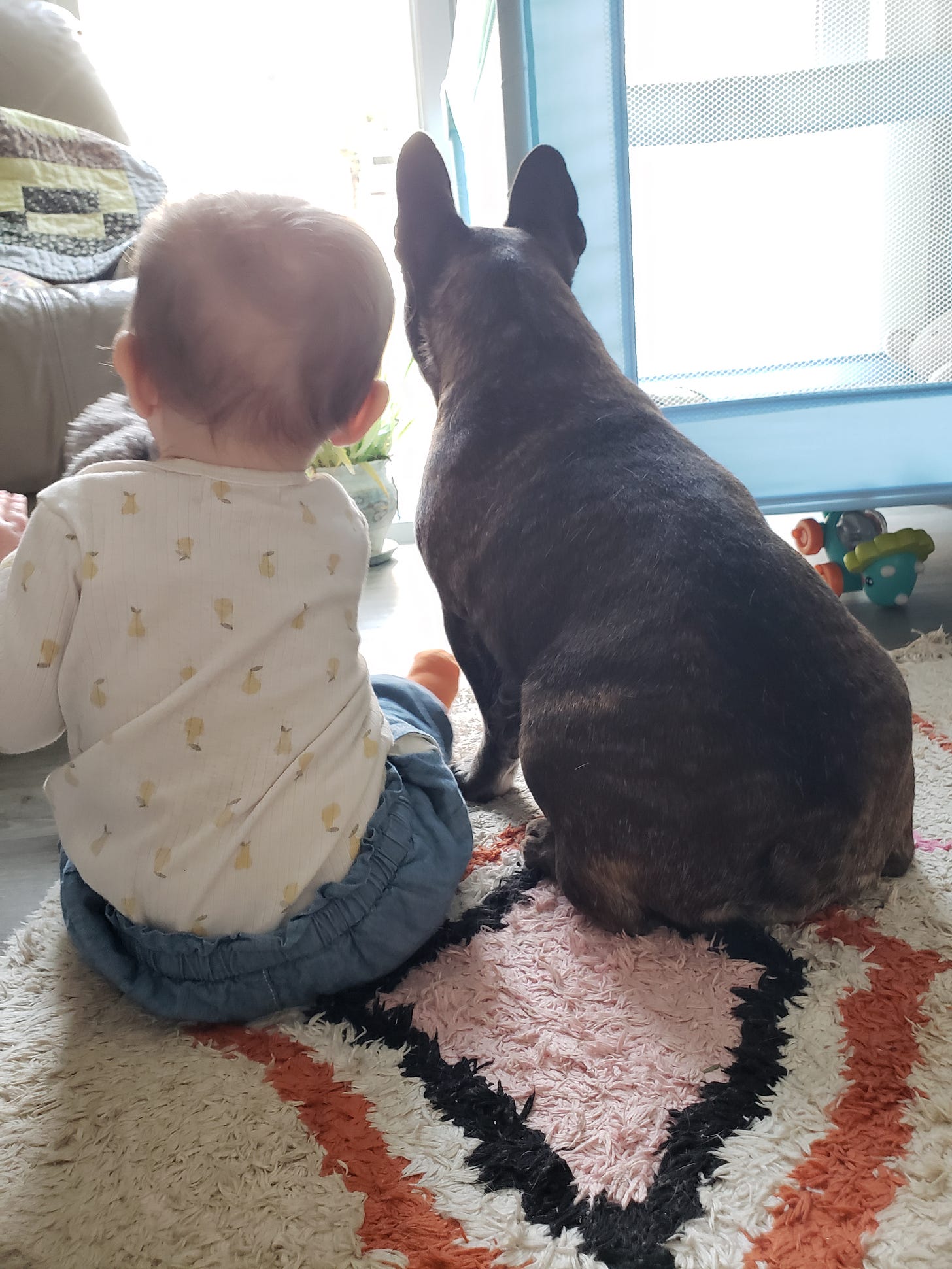
This is so beautiful.
I'm so very sorry for your loss.